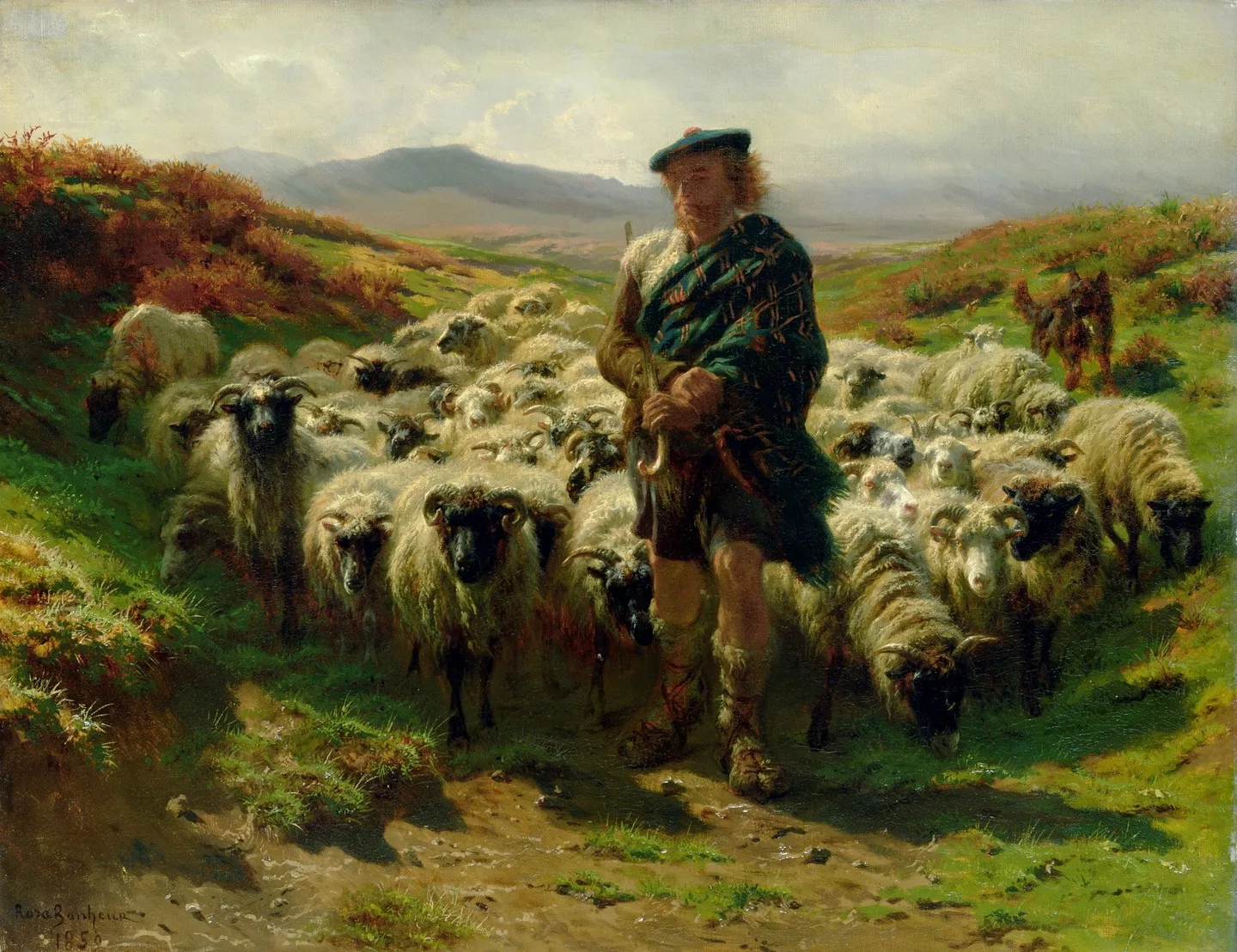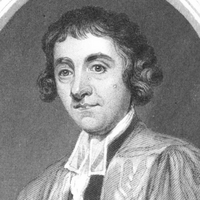
James Beattie
James Beattie FRSE (/ˈbiːti/; 25 October 1735– 18 August 1803) was a Scottish poet, moralist and philosopher.
James Beattie FRSE (/ˈbiːti/; 25 October 1735– 18 August 1803) was a Scottish poet, moralist and philosopher.
Life
James Beattie was born the son of a shopkeeper and small farmer at Laurencekirk in the Mearns, and educated at Marischal College (later part of Aberdeen University), graduating in 1753.
In 1760, he was appointed Professor of moral philosophy there as a result of the interest of his intimate friend, Robert Arbuthnot of Haddo. In the following year he published a volume of poems, The Judgment of Paris (1765), which attracted attention. The two works, however, which brought him most fame were An Essay on the Nature and Immutability of Truth, and his poem of The Minstrel. The Essay, intended as an answer to David Hume, had great immediate success, and led to an introduction to the King, a pension of £200, and the degree of LL.D. from Oxford. The first book of The Minstrel was published in 1771 and the second in 1774, and constitutes his true title to remembrance, winning him the praise of Samuel Johnson. It contains much beautiful descriptive writing.
Beattie was prominent in arguing against the institution of slavery, notably in his Essay on the Nature and Immutability of Truth (1770) and Elements of Moral Science.
Beattie was an amateur cellist and member of the Aberdeen Musical Society. He considered questions of music philosophy in his essay On Poetry and Music (written 1762, published 1776), which was republished several times and translated into French in 1798. His poem “The Hermit” was set to music by Tommaso Giordani (1778).
Beattie was co-founder of the Royal Society of Edinburgh in 1783.
Beattie underwent much domestic sorrow in the death of his wife, Mary Dunn, whom he had married in 1767, and two promising sons, which broke down his own health and spirits. He died in Aberdeen in 1803 and is buried there in St Nicholas’ Churchyard.
Recognition
A biographical sketch, An Account of the Life of James Beattie, LL.D., was published in 1804 by Alexander Bower.
The poet Robert Burns informed Mrs Frances Dunlop in a letter that the idea of using Coila as the name of his poetic muse first came to him from Beattie’s use of a muse named 'Scota’ in his Scots language poem of 1768 titled To Mr Alexander at Lochlee.
Beattie is one of the sixteen Scottish poets and writers depicted on the Scott Monument on Princes Street in Edinburgh. He appears on the left side of the east face.
Works
Original Poems and Translations (1760)
The Judgement of Paris (1765)
Poems on Several Subjects (1766)
An Essay on the Nature and Immutability of Truth (1770)
The Minstrel; or, The Progress of Genius (1771/2) two volumes
Essays, on the nature and immutability of truth in opposition to sophistry and scepticism. On poetry and music as they affect the mind. On laughter and ludicrous composition. On the utility of classical learning (1776)
Essays on Poetry (1778)
Scoticisms, Arranged in Alphabetical Order, Designed to Correct Improprieties of Speech and Writing (1779)
Poems on several occasions (1780)
Dissertations Moral and Critical (1783)
The Evidence of the Christian Religion Briefly and Plainly Stated (1786) 2 vols.
The theory of language. Part I. Of the origin and general nature of speech. Part II. Of universal grammar (1788)
Elements of Moral Science (1790–1793) two volumes
The Poetical Works of James Beattie (1831) edited by A. Dyce
The poetical works of Beattie, Blair, and Falconer (1868) edited by Charles Cowden Clarke
James Beattie’s Day-Book, 1773-1778 (1948) edited by R. S. Walker
James Beattie’s Diary (1948) edited by R. S. Walker
References
Wikipedia—https://en.wikipedia.org/wiki/James_Beattie_(poet)


